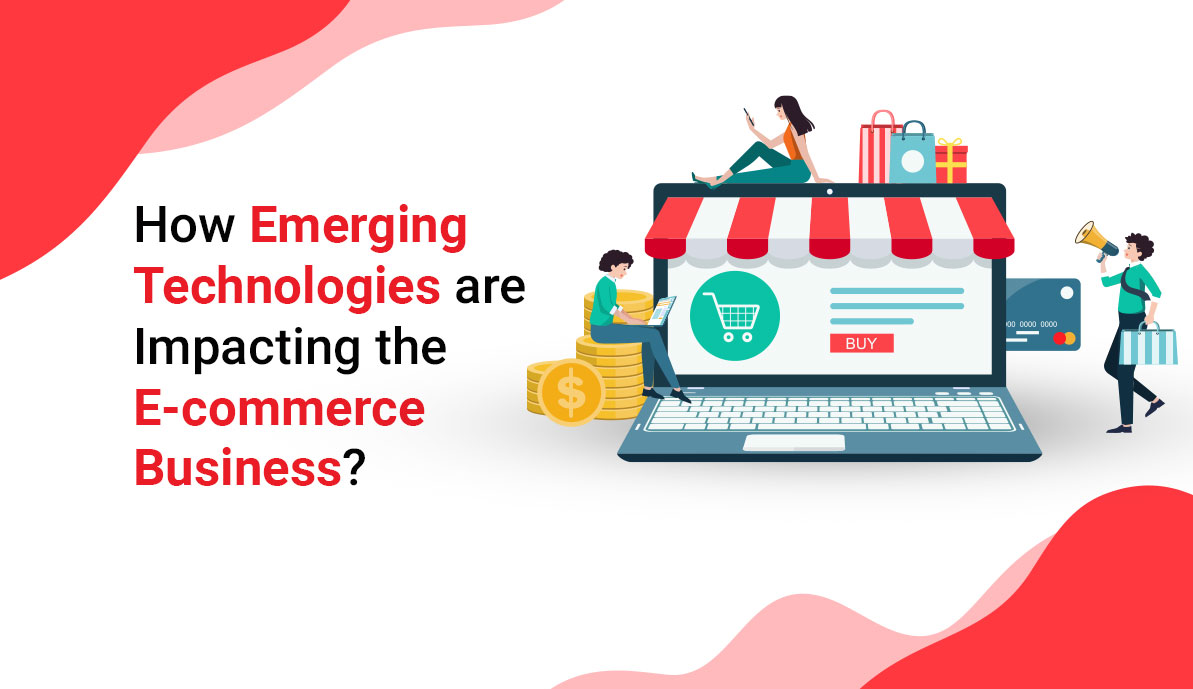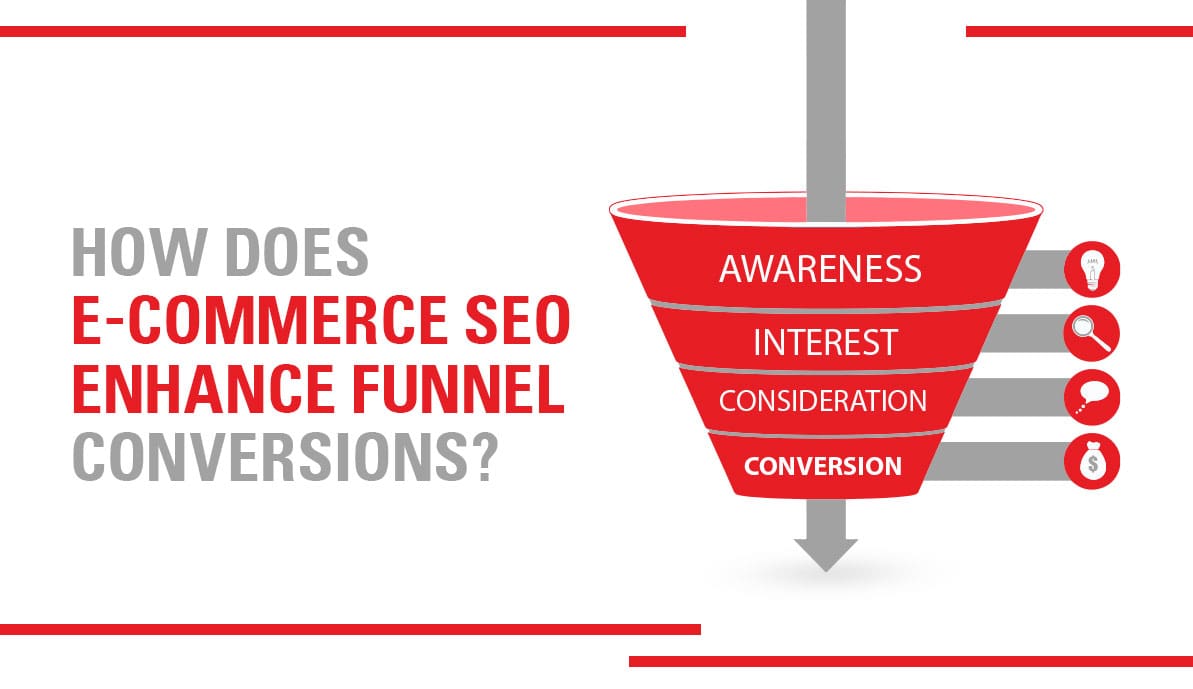Emerging technologies have revolutionized various industries in the digital era. The convergence of cutting-edge innovations has paved the way for remarkable advancements in online retail, enhancing customer experiences, optimizing supply chain management, and driving business growth. From artificial intelligence to augmented reality and blockchain, these emerging technologies have become the backbone of the e-commerce landscape, empowering businesses to thrive in the competitive market. In this blog, we will explore the profound impact of these technologies on the e-commerce industry and the way they are changing the future of online retail.
Impact of Technologies on E-commerce Business
The impact of technologies on the e-commerce business has been profound and transformative. Emerging technologies such as artificial intelligence, machine learning, augmented reality, virtual reality, blockchain, and the Internet of Things have revolutionized the way online retail operates. These innovations have enabled businesses to personalize customer experiences, optimize supply chain operations, enhance decision-making processes, and improve overall efficiency.
Incorporating Artificial Intelligence (AI) and Machine Learning (ML):
Artificial Intelligence (AI) and Machine Learning (ML) have emerged as game-changers in the e-commerce space. Several Ecommerce Services in Florida incorporate these technologies, enabling businesses to analyze vast amounts of customer data, gaining valuable insights to personalize user experiences and enhance decision-making processes. With AI-powered chatbots and virtual assistants, e-commerce companies can provide 24/7 customer support, address queries, and offer personalized recommendations, improving customer satisfaction and engagement. Machine Learning algorithms also play a crucial role in demand forecasting, inventory management, and dynamic pricing, optimizing supply chain operations and driving cost-efficiency.
Optimizing for smartphone use:
The widespread use of mobile phones has given rise to mobile commerce or m-commerce. With the increasing adoption of mobile devices, e-commerce businesses have to ensure that their platforms and websites are optimized for mobile users. Mobile apps and responsive web design provide seamless and user-friendly experiences, enabling customers to browse, shop, and purchase on the go. Mobile payment solutions, such as digital wallets and mobile banking, have also simplified the checkout process, enhancing convenience for mobile shoppers.
Incorporating Augmented Reality (AR) and Virtual Reality (VR):
Augmented Reality and Virtual Reality have transformed the way consumers interact with products in the e-commerce realm. AR enables customers to visualize products in their real-world environment, eliminating doubts and increasing confidence in purchasing decisions. Through VR, customers can virtually experience products, such as trying on clothes or exploring furniture, providing an immersive and interactive shopping experience. By incorporating AR and VR technologies, e-commerce businesses can reduce return rates, enhance customer engagement, and differentiate themselves from competitors.
Use of Personalization and Recommendation Engines:
Emerging technologies have paved the way for highly personalized and tailored shopping experiences. Recommendation engines powered by AI and ML algorithms analyze user behavior, purchase history, and preferences to suggest relevant products or services. Personalization also extends to targeted marketing campaigns, customized emails, and personalized promotions, creating a more individualized and engaging shopping journey for customers. By delivering personalized recommendations, eCommerce businesses and the E-commerce industry can increase customer engagement, cross-selling, and upselling opportunities, ultimately driving revenue growth.
Investing in Blockchain Technology:
Blockchain technology has the potential to revolutionize various industries, including e-commerce. By leveraging blockchain, e-commerce businesses can enhance online transactions’ transparency, security, and trust. Smart contracts powered by blockchain enable secure and automated payment processes, reducing the need for intermediaries and eliminating the risk of fraud. Additionally, blockchain can improve supply chain traceability, ensuring the authenticity and provenance of products, which is particularly important in industries like luxury goods or food.
Using Voice Commerce:
The evolution of voice assistants and smart speakers has risen to a new trend in e-commerce, known as voice commerce. Voice commerce allows users to make purchases, search for products, and interact with e-commerce platforms using voice commands. This technology simplifies purchasing, enhances convenience, and provides an alternative channel for e-commerce businesses to reach customers. By optimizing their websites and platforms for voice search, businesses can tap into this growing market segment and gain a competitive advantage.
Internet of Things (IoT):
The Internet of Things has opened up new avenues for e-commerce companies by connecting devices and enabling seamless communication. IoT-enabled devices, such as smart appliances and wearables, provide valuable customer behavior and preferences data. This data can be leveraged by businesses to deliver personalized marketing campaigns, optimize supply chain processes, and improve inventory management. Furthermore, IoT-enabled supply chain management systems can monitor inventory levels, track shipments, and streamline logistics, resulting in improved efficiency and reduced costs.
Social Media Marketing:
Social media platforms have emerged as powerful marketing tools for e-commerce businesses. With billions of active users, platforms like Facebook, Instagram, Twitter, and Pinterest offer unparalleled opportunities to reach and engage with a broad audience. Social media marketing allows businesses to create brand awareness, showcase products, and build a community of loyal customers. By strategically leveraging social media platforms, e-commerce companies can run targeted advertising campaigns, engage in influencer collaborations, share user-generated content, and provide customer support. Several Ecommerce Services in Florida use the real-time nature of social media, enabling their businesses to receive immediate feedback, monitor brand sentiment, and adapt marketing strategies accordingly.
Conclusion:
The impact of emerging technologies on the e-commerce industry cannot be overstated. Artificial Intelligence, Machine Learning, Augmented Reality, Virtual Reality, the Internet of Things, Blockchain, and Voice Commerce are reshaping how businesses operate and customers engage with online retail. By harnessing these technologies, Markethix enhances customer experiences, optimizes supply chain operations, improves decision-making, and drives business growth.



0 Comments